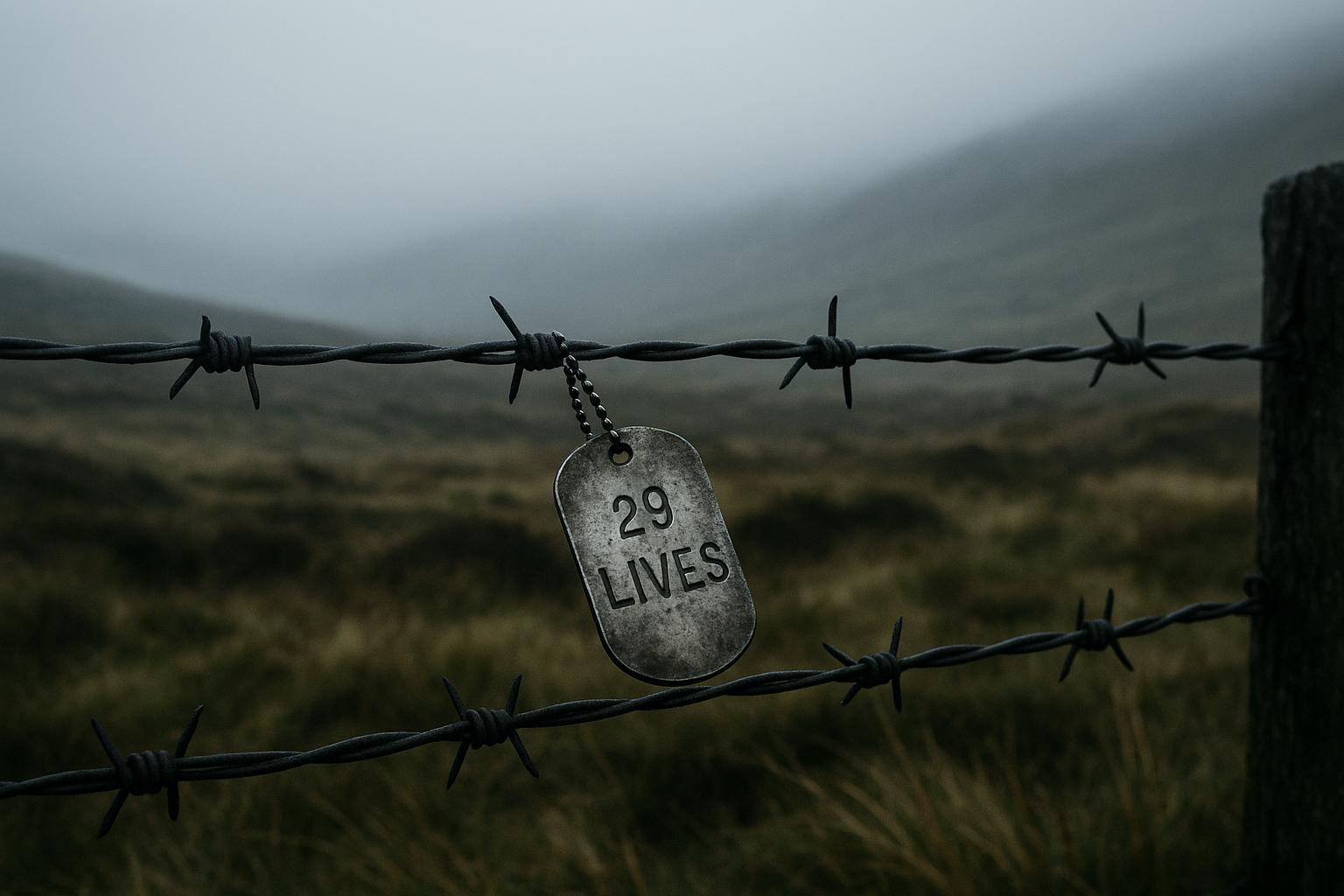The families of the 29 victims who perished in the 1994 Chinook helicopter crash on the Mull of Kintyre have intensified their campaign for a public inquiry into the tragedy, publishing 110 "critical questions" aimed at uncovering fresh insights into the incident. The crash claimed the lives of 25 intelligence personnel alongside four crew members as the Chinook Mk 2 ZD576 was en route from RAF Aldergrove in Northern Ireland to Fort George near Inverness. Despite the Ministry of Defence’s (MoD) repeated stance that the crash was a tragic accident and that no new evidence is likely to emerge from any further inquiry, the families dispute this, underscoring that many questions remain unanswered.
The Chinook Justice Campaign’s petition, which has garnered over 47,000 signatures, will be formally presented to Downing Street. The campaign highlights that key documents related to the crash remain sealed until 2094, a decision that has been deeply criticised by the families as a betrayal and an erosion of trust not only in the MoD but also in the government itself. David Hill, a technical expert for the campaign, has expressed frustration at the government's refusal to allow a judge-led inquiry and the ongoing secrecy, emphasizing that the extensive list of questions targets fundamental issues such as the mission’s authorisation, aircraft selection, and whether proper risk warnings were given to passengers and crew.
Legal actions are now being pursued to compel the government to conduct a thorough public inquiry. Solicitor Mark Stephens, representing the families, has launched a judicial review arguing that the MoD failed to honour its human rights obligations by not ordering a public inquiry and by neglecting critical information that could shed light on the helicopter’s airworthiness. The families’ legal challenge asserts that prior investigations have fallen short, either individually or collectively, in discharging their investigative duties adequately.
Government officials have referenced a series of reviews and investigations into the crash, including an independent review published by Defence Secretary Dr Liam Fox. This review recommended setting aside the initial verdict of gross negligence against the pilots and suggested the MoD consider an apology to the pilots' families. Additionally, it called for a reconsideration of policy concerning the transport of personnel with essential national security roles. Notably, the original gross negligence verdict against Flight Lieutenants Richard Cook and Jonathan Tapper was overturned by the government in 2011 after a prolonged campaign by bereaved families.
Despite these developments, the families remain dissatisfied. Jenni Balmer-Hornby, whose father was among the victims, insists the unanswered questions are grounded in evidence previously withheld or misrepresented, warranting a transparent and independent inquiry to honour the memory of those lost and restore faith in the process. Joel Hornby, who lost his father in the crash and recently visited the memorial site with his young son, publicly called on Prime Minister Sir Keir Starmer to intervene and ensure that the MoD’s decision to block a new inquiry and to impose a century-long document seal is reversed.
The MoD has maintained that the mishap was a tragic accident thoroughly investigated through six inquiries and that new inquiries are unlikely to reveal fresh evidence. However, the ongoing dispute underscores the families' demand for accountability and transparency after nearly three decades. The Chinook Justice Campaign’s persistence continues to highlight critical gaps in the official narrative, pressing for public and judicial scrutiny that they believe is essential for justice to be served.
📌 Reference Map:
- Paragraph 1 – [1], [6], [7]
- Paragraph 2 – [1], [5], [7]
- Paragraph 3 – [2], [6]
- Paragraph 4 – [3], [5], [7]
- Paragraph 5 – [1], [7]
- Paragraph 6 – [1], [7]
Source: Noah Wire Services
